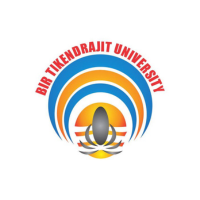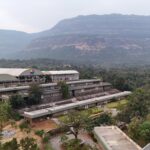Bachelor of Science [B.Sc] – BTU
Bachelor of Science (B.Sc.) is a popular undergraduate academic degree awarded to students who have completed a program in the scientific disciplines. The B.Sc. program typically lasts three to four years, depending on the country and the specific requirements of the institution. This degree is a gateway to a wide range of career opportunities and further studies in specialized fields.
B.Sc. Specializations and Branches:
-
B.Sc. Physics: This branch of science deals with the study of matter, energy, and the fundamental forces of nature. Students learn about topics such as mechanics, thermodynamics, electromagnetism, and quantum mechanics.
-
B.Sc. Chemistry: Chemistry is the science of matter, its properties, composition, and interactions with other substances. Students study the structure of atoms and molecules, chemical reactions, and the properties of different elements and compounds.
-
B.Sc. Biology: Biology is the study of living organisms and their interactions with each other and their environment. This field includes sub-disciplines such as botany, zoology, microbiology, and biotechnology.
-
B.Sc. Mathematics: Mathematics is the study of numbers, quantities, shapes, and patterns. Students in this field learn about algebra, calculus, geometry, and other mathematical concepts.
-
B.Sc. IT (Information Technology): This specialization focuses on the use of computers and telecommunications equipment to store, retrieve, transmit, and manipulate data. Students learn about computer programming, database management, and network administration.
-
B.Sc. Computer Science: Computer science is the study of computers and computational systems. Students learn about algorithms, programming languages, operating systems, and software development.
-
B.Sc. Microbiology: Microbiology is the study of microscopic organisms such as bacteria, viruses, fungi, and protozoa. Students learn about the role of microorganisms in health, disease, and the environment.
-
B.Sc. Biotechnology: Biotechnology is the use of living organisms or their derivatives to develop products and processes. Students in this field learn about genetic engineering, bioinformatics, and bioprocess engineering.
-
B.Sc. Biochemistry: Biochemistry is the study of the chemical processes and substances that occur within living organisms. Students learn about the structure and function of biological molecules such as proteins, nucleic acids, carbohydrates, and lipids.
-
B.Sc. Botany: Botany is the study of plants, including their structure, growth, reproduction, metabolism, and classification. Students learn about plant physiology, ecology, and genetics.
-
B.Sc. Zoology: Zoology is the study of animals, including their behavior, physiology, evolution, and ecology. Students learn about animal diversity, anatomy, and conservation.
-
B.Sc. Nursing: Nursing is a healthcare profession focused on caring for individuals, families, and communities to promote health and prevent illness. Nursing students learn about patient care, pharmacology, and healthcare ethics.
-
B.Sc. Fashion Design: Fashion design is the art of applying design, aesthetics, and natural beauty to clothing and its accessories. Students learn about fashion trends, textile design, and garment construction.
-
B.Sc. Animation: Animation is the process of creating moving images from static drawings or computer-generated graphics. Students learn about animation techniques, storytelling, and digital media production.
-
B.Sc. Hospitality: Hospitality management is the study of the hospitality industry, including hotels, restaurants, and tourism. Students learn about hospitality operations, customer service, and business management.
-
B.Sc. Agriculture: Agriculture is the science and art of cultivating plants and livestock. Students in this field learn about crop production, animal husbandry, and agricultural economics.
-
B.Sc. Geography: Geography is the study of the Earth's physical features and the processes that shape them. Students learn about maps, climate, landforms, and human geography.
-
B.Sc. Economics: Economics is the study of how societies allocate scarce resources to produce goods and services. Students learn about economic theory, market structures, and public policy.
-
Class 12 in the Science stream with at least 50% to 60 percent total from a perceived board. It could be noticed that the base rate expected for BSc confirmations might fluctuate relying upon the strategy of the college/school in which an up-and-comer is applying.
-
Competitors probably concentrated on Physical science, Science and Math (PCM) or Physical science, Science and Science as center subject mixes.



